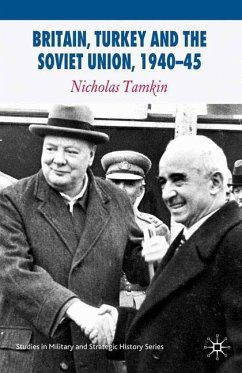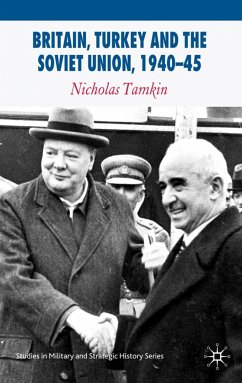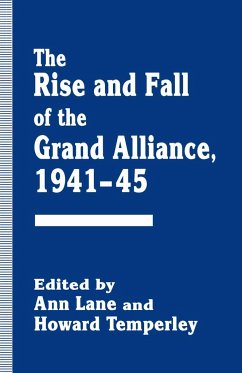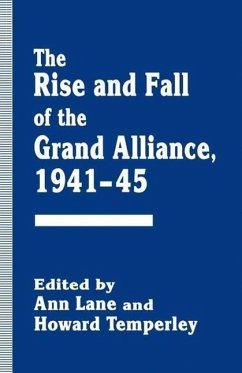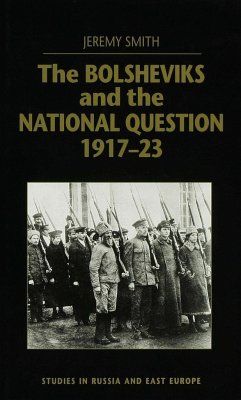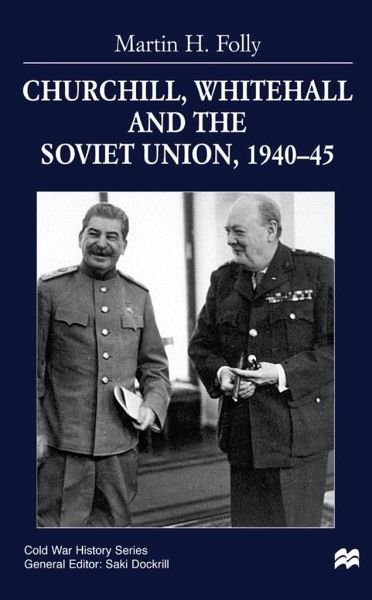
Churchill, Whitehall and the Soviet Union, 1940-45
Versandkostenfrei!
Versandfertig in 6-10 Tagen
76,99 €
inkl. MwSt.
Weitere Ausgaben:

PAYBACK Punkte
38 °P sammeln!
World War II threw Britain and the Soviet Union together as unlikely allies. This book examines British policy-makers' attitudes to cooperation with the USSR and shows how views of internal developments in the USSR and of Stalin himself influenced Churchill, the War Cabinet and the Foreign Office to believe that long-term collaboration was a desirable and achievable goal. In particular, it was assumed that a shared concern to prevent future German aggression would be a lasting bond. Such attitudes significantly shaped Britain's wartime policy towards the USSR, and for many individuals, includi...
World War II threw Britain and the Soviet Union together as unlikely allies. This book examines British policy-makers' attitudes to cooperation with the USSR and shows how views of internal developments in the USSR and of Stalin himself influenced Churchill, the War Cabinet and the Foreign Office to believe that long-term collaboration was a desirable and achievable goal. In particular, it was assumed that a shared concern to prevent future German aggression would be a lasting bond. Such attitudes significantly shaped Britain's wartime policy towards the USSR, and for many individuals, including Churchill, played a more important role than their long-standing anti-Communist attitudes.






